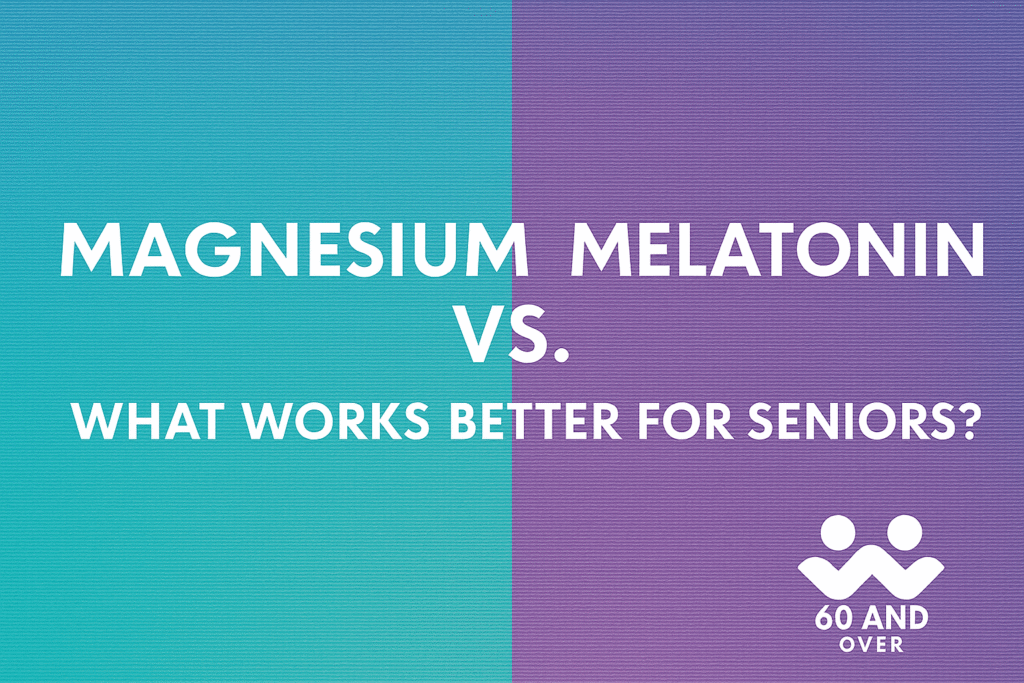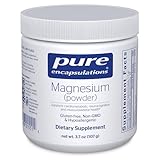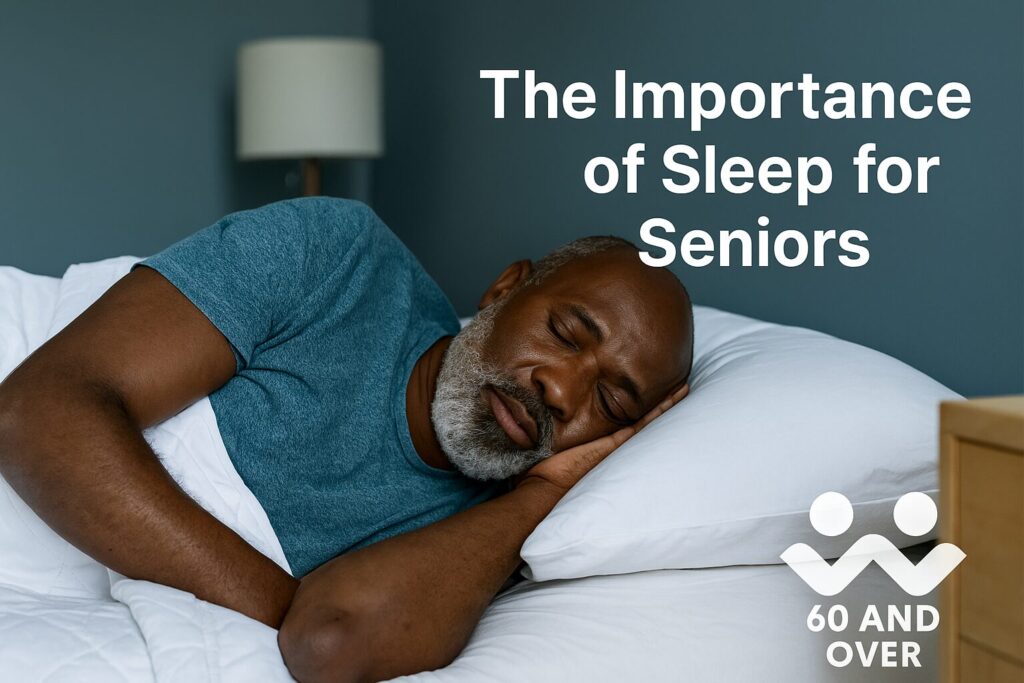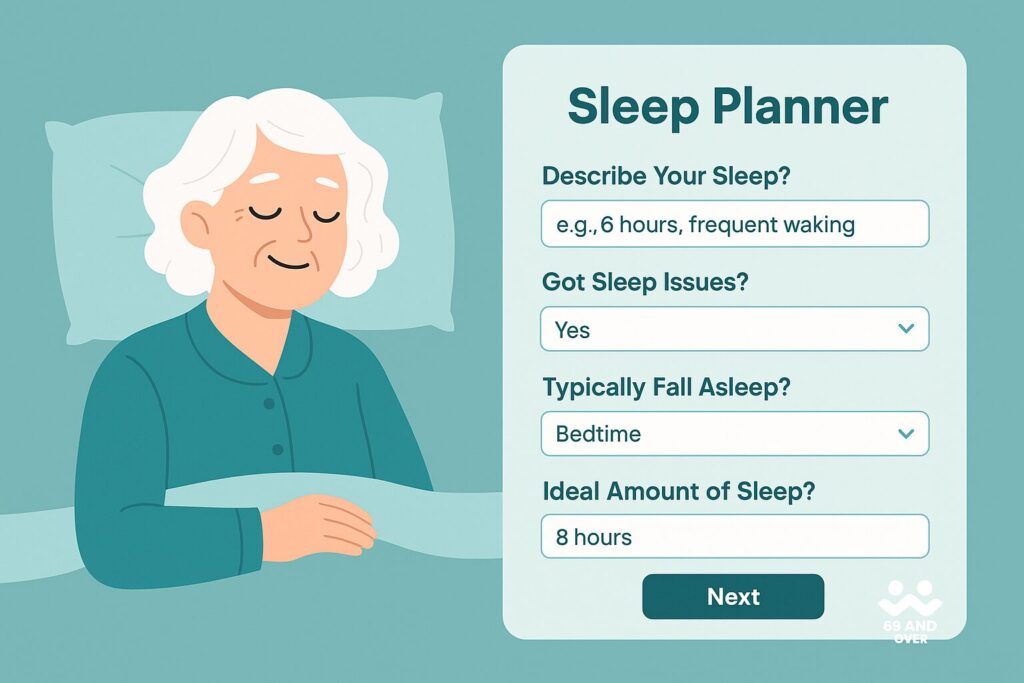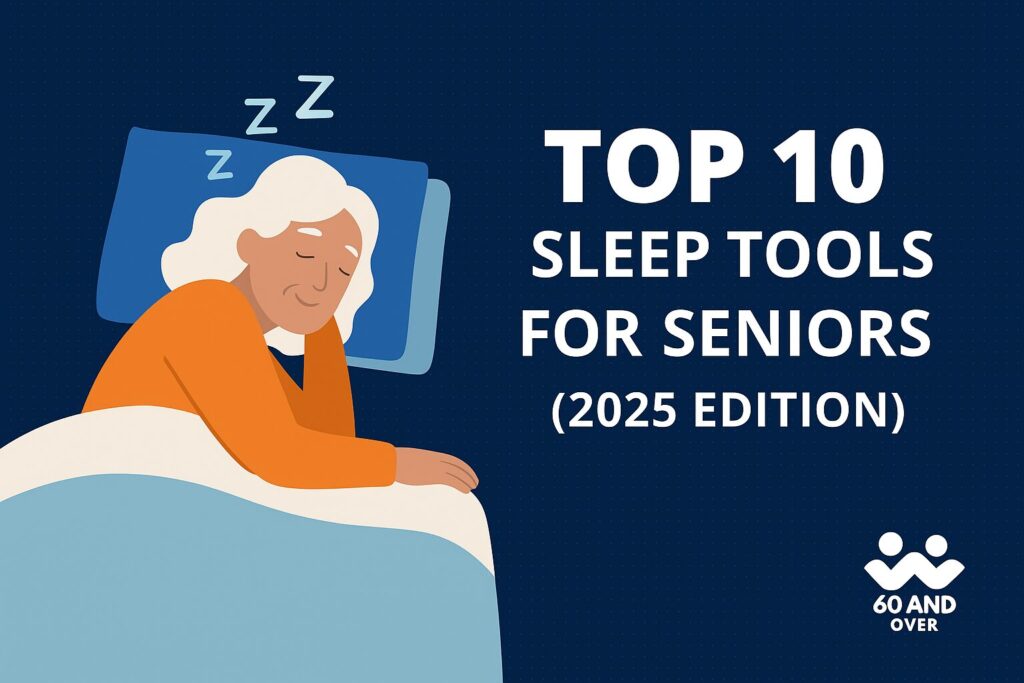Getting a full night of restful sleep is something many older adults struggle with. Waking up often, tossing for hours before falling asleep, or feeling tired even after eight hours — sound familiar? Two of the most trusted natural sleep aids for seniors are magnesium and melatonin, but they help the body in very different ways. Understanding those differences can help you choose what truly works for you.
🧠 How Melatonin Helps Seniors Sleep
Melatonin is a hormone your body naturally produces in response to darkness. It tells your brain that it’s time to wind down, making it easier to fall asleep at a consistent hour. However, melatonin levels often decline with age, which is why many older adults find themselves lying awake even when they feel tired.
Why seniors use melatonin:
- Helps regulate sleep–wake cycles
- Useful for jet lag or delayed sleep patterns
- Non-addictive and available without a prescription
How to take it:
Most people benefit from low doses (0.3–1 mg) about 30–60 minutes before bed. Higher doses don’t necessarily work better — in fact, too much melatonin can make you groggy the next day.
Best for: Seniors who have trouble falling asleep but generally stay asleep once they do.
🧂 How Magnesium Supports Restful Sleep
Magnesium isn’t a hormone — it’s a mineral that plays a key role in more than 300 processes in the body, including nerve relaxation, muscle recovery, and mood balance. Low magnesium levels are linked to poor sleep quality, restless legs, and nighttime cramps — all common issues among older adults.
Why seniors use magnesium:
- Calms the nervous system naturally
- Reduces muscle tension and twitching
- Promotes steady, uninterrupted sleep
- May improve mood and reduce mild anxiety
Best forms for seniors:
Look for magnesium glycinate or magnesium citrate, which are gentle on the stomach and more easily absorbed. Avoid magnesium oxide — it’s cheaper but less effective for sleep.
Best for: Seniors who wake frequently during the night or have muscle tightness and stress-related insomnia.
⚖️ Magnesium vs. Melatonin: Which Is Better?
| Factor | Melatonin | Magnesium |
|---|---|---|
| Primary Action | Regulates your sleep-wake cycle | Relaxes muscles and nerves |
| Best For | Trouble falling asleep | Waking up often or restless sleep |
| How Fast It Works | Within 30–60 minutes | Builds gradually with daily use |
| Availability | Over-the-counter supplement | Over-the-counter mineral |
| Common Form | Gummies, tablets, drops | Capsules, powders, or drinks |
| Possible Side Effects | Grogginess, vivid dreams | Mild stomach upset (rare) |
| Safety for Seniors | Safe in small doses | Safe and beneficial for most |
Verdict:
If you can’t fall asleep, melatonin may help you drift off faster. If you stay awake due to cramps, anxiety, or light sleep, magnesium is usually more effective. For some older adults, combining the two — a small dose of each — provides the best balance.
💊 Tips Before Taking Either
- Always start with the lowest effective dose.
- Talk to your doctor if you take blood pressure, heart, or thyroid medication.
- Avoid combining supplements with alcohol or prescription sedatives.
- Keep your bedroom cool, dark, and device-free for best results.
💤 The Bottom Line
Both magnesium and melatonin can help older adults reclaim better sleep — they just do it in different ways. Think of melatonin as the signal to start sleeping, and magnesium as the support system that keeps you asleep peacefully. With consistent use and healthy habits, you can finally enjoy the calm, restorative nights your body deserves.
💡 Recommended for Seniors
- Magnesium Bisglycinate Capsules; Heart, nerve and bone support supplement: contains one 180…
- A high absorption Magnesium supplement for women and men(1) that helps convert food into…
- Gentle on the stomach, Magnesium Glycinate helps relax the body, and is a highly bioavailable…
- Magnesium helps support the production of Melatonin
- OLLY SLEEP GUMMIES: Our Melatonin gummies, with L-Theanine and Botanical Extracts, work with…
- THE GOODS INSIDE: Featuring 3mg of Melatonin, a sleepy time superstar ingredient that helps you…
- HOW TO TAKE: Take 2 gummies 30 minutes before bed. Chew thoroughly before swallowing.
- DELIGHTFULLY TASTY: Sleep gummies come in Blackberry Zen flavor with a fresh hint of mint &…
- Bioavailable Powder: Magnesium (Powder) offers a soluble, highly bioavailable form of magnesium…
- Nutrient Metabolism Support: Supports the metabolism and utilization of many essential…
- Bone Mineralization: Magnesium helps healthy bone mineralization, cardiovascular function, and…
- Sleep & Relaxation Aid: Magnesium powder may help to support the sleep cycle and aid a sense of…
- Nature Made Magnesium Glycinate 200mg Capsules – Gentle, easy to absorb, non-laxative formula.
- OLLY Sleep Gummies with Melatonin, L-Theanine & Botanicals – A mild, pleasant option to relax before bed.
- Pure Encapsulations Magnesium Glycinate Powder – Mixes easily into water or warm milk before bedtime.
🧩 Frequently Asked Questions
1. Is magnesium or melatonin safer for seniors?
Both are generally safe for healthy older adults, but they serve different purposes. Melatonin helps regulate your body clock, while magnesium supports relaxation and nerve health. Always check with your doctor before starting either, especially if you take heart or blood pressure medications.
2. Can magnesium and melatonin be taken together?
Yes — many seniors safely use both. Magnesium can calm the body and ease tension, while melatonin helps signal the brain that it’s time to sleep. If you combine them, start with small doses and monitor how you feel.
3. Which supplement is better for staying asleep?
Magnesium is often better for maintaining deep, continuous sleep because it supports muscle relaxation and prevents nighttime cramps. Melatonin mainly helps with falling asleep faster.
4. How long does it take for magnesium or melatonin to work?
Melatonin typically works within 30–60 minutes. Magnesium, however, may take several days to build up in the body and improve sleep quality over time.
5. What form of magnesium is best for older adults?
Magnesium glycinate or citrate are the best forms for seniors. They absorb well and are gentle on the stomach, unlike magnesium oxide, which can cause digestive upset.
6. Are there any side effects?
Melatonin may cause mild grogginess or vivid dreams. Magnesium is well tolerated but may lead to mild stomach discomfort if taken in large doses. Taking either supplement too close to other medications should be avoided without a doctor’s approval.

